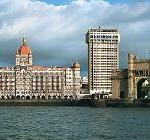Mumbai and Delhi could be on two different planets. Right from topography to attitudes, the two cities are a complete contrast, the former, a city on the sea, being open minded and business like, the latter, landlocked and inward looking more concerned with hierarchies and power. These are of course broad-brush stereotypes, but what is indisputable is that Delhi, being the capital, is the place where policies are made and that gives it a position of influence. This is particularly true of foreign policy, which is the sole domain of the central government.
In the past, visiting heads of state or government used to only visit Delhi or at best some small village in the neighbourhood. That slowly began to change in the 1990s after India opened up its economy, as foreign powers realized that Mumbai’s business community had a lot to offer. The visits began to get an economic dimension and businessmen became part of a visitor’s delegation. Other cities like Bangalore and Hyderabad also emerged as destinations of choice for presidents and prime ministers who wanted to check out India’s IT companies.
So in that sense, President Barack Obama’s trip to Mumbai where he met entrepreneurs and big business was hardly anything new. But there are many aspects that make it unique.
For one thing, he began his trip from Mumbai. That, combined with the fact that he was travelling with over 200 top executives from big U.S. companies sent an unmistakable message that he had come to India as a salesman for his country. When was the last time a U.S. President came here to ask for business which would give his countrymen jobs? After speaking to some of the hostages who had survived the 26/11 terrorist attacks and visiting Mani Bhavan, which was the home of Mahatma Gandhi for several years, he addressed a gathering of India’s top businessmen and announced many business deals, totally said to amount $10 billion dollars.
At this stage, there was some criticism that he had not mentioned Pakistan even once, though the talk at the Taj Mahal hotel was a perfect opportunity to do so. There are many theories for this, but it could also be that he did not want anything to overshadow the business angle of his trip.
Obama came to India in the immediate aftermath of his party’s loss in the U.S. mid-term elections. This was seen as the voters’ protest at the economic recession in the U.S., where jobs and homes have been lost. Much of the anger has been directed at Obama’s handling of the economy. It was important for the President to show he was doing something about it, which is why the message throughout his speech in Mumbai was “jobs for the Americans.” He was careful not to bring up contentious issues like Outsourcing which would displease his Indian hosts, who have maintained continuously that it is a political issues since outsourcing is a win-win for both countries.
Though the Delhi visit was about more strategic issues, it was apparent that economic matters too were on the agenda. In his press conference, Prime Minister Manmohan Singh not only spoke about Pakistan and Kashmir, he forcefully said that India was “not in the business of stealing jobs”.
Clearly, therefore economic ties have now become as important as strategic relations; indeed, both could be seen to be closely linked. By giving the importance he did to business matters and by coming here as salesman-in-chief as well as head of state, by coming to Mumbai before New Delhi, President Obama has signaled a new phase in bilateral relations. Mumbai and all it represents is now firmly a part of Indian foreign policy. Mumbai’s businessmen, intellectuals and academics should now think about foreign affairs and how they can contribute to the larger policy debate. The Mumbai visit and its outcome is a game changer for the future, and is arguably the most significant outcome of the Barack Obama visit.
Sidharth Bhatia is a freelance journalist and writer
This article was exclusively written for Gateway House: Indian Council on Global Relations. You can read more exclusive content here.
For interview requests with the author, or for permission to republish, please contact outreach@gatewayhouse.in.
© Copyright 2010 Gateway House: Indian Council on Global Relations. All rights reserved. Any unauthorized copying or reproduction is strictly prohibited


